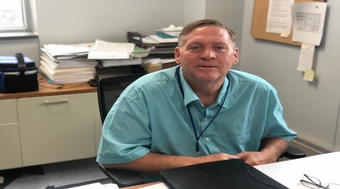-
HOW DO I
Apply For
Find
Pay
Water Testing

-
RESIDENTS
Health & Wellness
Senior & Assisted Living
Environment
Families & Individual Support
Financial Assistance
Library
Safety & Justice
Broadband

-
BUSINESS
Community Development
GIS Mapping
Ordinances
Requests For Proposals
Start A Business
Zoning, Planning & Land Information
Broadband

-
VISITORS
Campgrounds & Shelters
Downtown Guide
Hunting & Fishing
Parks/Facilities
Explore La Crosse

-
YOUR GOVERNMENT
County Board
Ordinances
Resolutions
Elections
Elected Officials
State
Facilities
Municipalities: Cities, Villages and Towns
- CITY OF LA CROSSE
- CITY OF ONALASKA
- TOWN OF BANGOR
- TOWN OF BARRE
- TOWN OF BURNS
- TOWN OF CAMPBELL
- TOWN OF FARMINGTON
- TOWN OF GREENFIELD
- TOWN OF HAMILTON
- TOWN OF HOLLAND
- TOWN OF MEDARY
- TOWN OF ONALASKA
- TOWN OF SHELBY
- TOWN OF WASHINGTON
- VILLAGE OF BANGOR
- VILLAGE OF HOLMEN
- VILLAGE OF ROCKLAND
- VILLAGE OF WEST SALEM
School Districts


News
We Are La Crosse County: Dave Sawvell
Thursday, October 14, 2021 2:10 PM

Lead Sanitarian Dave Sawvell spends his days conducting soil tests, answering questions about water testing, and studying septic systems. He says he has one of the best jobs in the county.
Dave Sawvell has an encyclopedic knowledge of the soil and groundwater of rural La Crosse County. Call him up, and he can tell you which of many chemicals you may need to test your water for based on where you live, or what kind of septic system is best suited to your property. As Lead Sanitarian with the La Crosse County Health Department, he uses his expertise to protect the groundwater we all depend on.
“I probably have one of the best jobs in the county,” says Sawvell, who has worked for the county since 1999. “I’m out when the sun shines, and I’m in when it’s raining.”
Sawvell works on ensuring septic systems are installed to meet state codes and that those systems are pumped every three years to remove solids. He also works to help residents decide where to locate wells and advises on water testing. This is no small task. About 9,000 predominantly rural households in La Crosse County have septic systems, and many of those households also depend on well water.
A typical day for Sawvell might involve going out into the field to conduct soil tests, which help decide what type of septic system is suitable for a particular property. After a system is installed, Sawvell will return to check if the project meets state code. This protects homeowners, and the wider public, by reducing pollution to groundwater. Back at the office, Sawvell often takes calls from members of the public with questions about testing well water.
“Testing for chemicals is complicated because you have to know what you’re looking for,” he notes.
This is where Sawvell’s local experience comes into play. He knows where nitrates are likely to be an issue, or if a home is near a brownfield site that may require particular attention to certain contaminants, or if an area has naturally high levels of metals in groundwater. Sawvell can tell you roughly how deep neighboring wells were dug to help homeowners know if they’re on the right track. He also gives advice on chlorination and filtration of well water. Overall, knowledge of hazards to wells and issues with septic systems has improved over the years, Sawvell says.
“As you get more data and information, you find new problems,” he adds. “Take PFAS, for example, we didn’t know it existed until probably five years ago.”
In addition to working on the county's well and septic programs, Sawvell also works on environmental hazard complaints. This is a new responsibility and is due to other staff being shifted to COVID-19 duties. It means Sawvell works on complaints of illegal dumping, hording, mold, and assorted other environmental hazards. It also means that more than ever, every day brings something different to his desk, but Sawvell enjoys the variety in his work.
“This department is here for the residents and my goal is to make sure that everything we do is beneficial to them,” he says.
Learn more about well and septic systems, including testing, pumping and permits, on the La Crosse County Health Department website at this link.
© 2025 La Crosse County. All Rights Reserved.
